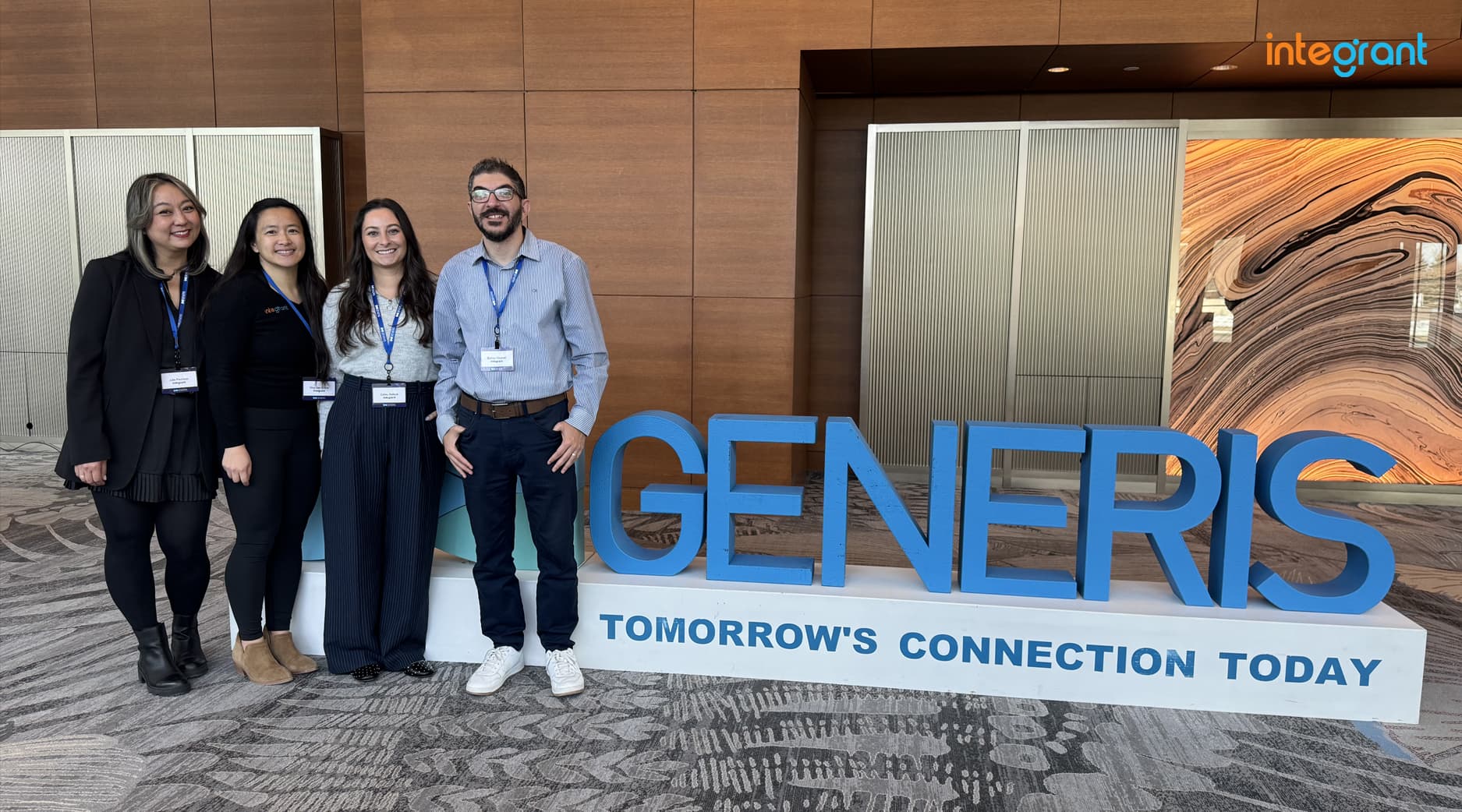American Manufacturing Summit: AI Innovation Takes Center Stage

At this year’s American Manufacturing Summit in Chicago, industry leaders came together to explore the future of manufacturing—where innovation, data, and AI are playing increasingly central roles.
We had the privilege of showcasing Integrant’s AI solutions, engaging in rich conversations, and learning more about the challenges and opportunities manufacturers face as they navigate digital transformation.
AI in Manufacturing: One Size Doesn’t Fit All
One theme was clear across the summit: manufacturers are in vastly different stages of their AI journeys. Some are just beginning to explore what’s possible, while others have launched pilot programs and are now evaluating how to scale their successes across facilities and functions.
This wide range of AI readiness sparked meaningful discussions around workforce impact, ROI, system integration, and data strategy. Regardless of where they are in the journey, most attendees shared a common goal—adopting and scaling technology in a way that’s purposeful, sustainable, and aligned with operations.
Top Priorities: Security, Integration, and Data Usability
When discussing AI implementation, certain questions consistently emerged at our booth and during presentations:
Data security topped the list of concerns, with many manufacturers asking detailed questions about how AI solutions protect sensitive production data. This was coupled with questions about AI training methodologies and data governance.
System integration emerged as another critical focus area. Manufacturers wanted to understand how AI solutions could work alongside their existing architecture of MES systems, ERP platforms like SAP, and legacy machinery. Questions centered on how to clean, consolidate, and standardize data from these varied sources to make it usable for AI applications.

Workshop Recap: Real-World AI Applications
Our workshop on AI in manufacturing drew an engaged crowd eager to see real applications. We demonstrated how AI agents (chatbots) and computer vision (image recognition) can transform workflows, with attendees asking smart, forward-thinking questions such as:
On Data Security & Integration:
- How do we ensure data security when integrating AI?
- What steps are necessary to make raw data usable for AI applications?
On Computer Vision Capabilities:
- What are the limitations of computer vision in manufacturing environments?
- Can computer vision be applied to assembly methods to make real-time recommendations?
On Implementation & Usability:
Is AI adoption reliant on subject matter experts, or can it be more automated?
These questions highlight both the challenges and opportunities manufacturing leaders are navigating as they adopt AI-driven technologies.

Popular Use Cases That Resonated
Certain AI applications generated deeper interest among attendees:
Anomaly detection captured the attention of manufacturers with large data lakes who wanted to move beyond dependency on key individuals to manually analyze data. The ability to automatically identify outliers and potential issues resonated strongly.
Predictive maintenance solutions that could forecast equipment failures before they occur sparked enthusiastic conversations, particularly among those with critical production equipment.
Computer vision for quality control emerged as a high-value application, especially for manufacturers still relying on visual inspections without camera assistance. The ability to tie visual defects to specific maintenance issues proved particularly compelling.
AI agents for operator support was a topic that addressed challenges on retention and upskilling. Chatbots and AI-powered assistants that integrate with MES systems resonated with teams looking to reduce the burden of repetitive tasks like submitting tickets or logging issues. These tools allow operators to focus on higher-value work while improving response times and data capture across the floor.
Data usability and process insights stood out as a priority for manufacturers looking to make better use of the data they’re already collecting. Many attendees were focused on how to clean, structure, and analyze existing datasets to uncover inefficiencies, reduce waste, and improve decision-making across teams.
Safety monitoring and PPE compliance applications drew interest from safety-focused manufacturers looking to reduce workplace incidents through proactive monitoring.
The Path Forward: From Pilots to Scale
A recurring theme was the challenge of expanding AI beyond isolated pilots. Many manufacturers shared a cautious, thoughtful approach: test new solutions at one or two sites, prove out the ROI, and then consider scaling.
This mindset reflects a growing maturity in the industry—focusing less on “shiny objects” and more on what works in real-world environments.
Looking Ahead: The Future of AI in Manufacturing
Based on our conversations at the summit, we see AI adoption in manufacturing continuing to accelerate, with particular interest in:
- Seamless integration across formerly siloed systems
- User-friendly interfaces that make complex data accessible to operators
- Predictive capabilities that move beyond reactive problem-solving
- AI agents that support both operators and executives—streamlining tasks and surfacing insights from complex systems
- Data usability tools that help manufacturers extract value from the data they already have
- Computer vision tools that enhance quality while reducing reliance on manual inspections
- Knowledge capture solutions that preserve expertise in an era of workforce transitions
Continuing the Conversation
The American Manufacturing Summit reinforced our commitment to developing AI solutions that address real manufacturing challenges. We're grateful for the insightful conversations and connections made during the event.
If you're exploring how AI can transform your manufacturing operations—whether you're just starting your journey or looking to scale existing initiatives—we'd welcome the opportunity to continue the conversation.
Together, we can navigate the path toward smarter, more efficient manufacturing through thoughtful, human-centered AI.